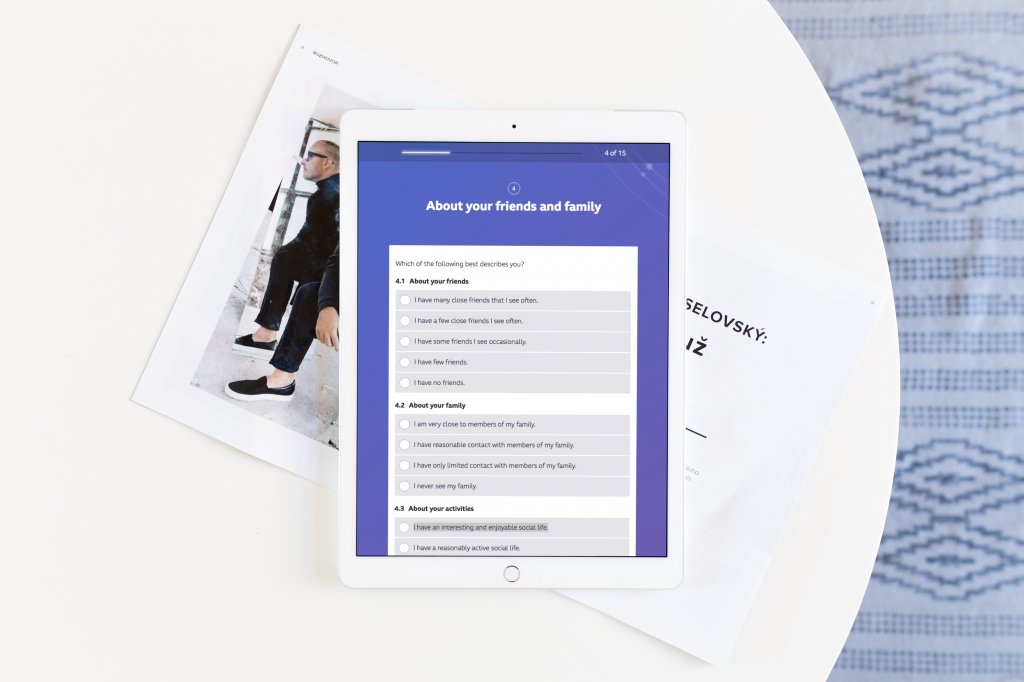Last year I wrote a post about why mass citizen science projects are the perfect match for TV. In the past few months, Joi Polloi has worked on three new and exciting citizen science projects for the BBC and Channel 4, to help the public find out something about themselves, and for scientists to find out more about the public.
What is citizen science?
Citizen science is scientific research conducted in whole or in part, by amateur scientists, or ‘the public’. The first recorded use of the term ‘citizen science’ was in 1989, and involved 225 Americans collecting rain samples for an acid-rain awareness raising campaign. Fast forward almost 30 years later to 2018 and citizen science is being used to analyse millions of data samples, images and more using millions of participants. With the advent of broadcast media, and the internet, you can conduct citizen science on an enormous scale.
Joi Polloi & Citizen Science
This isn’t the first time we’ve collaborated on projects like this — we’ve worked on several mass participation citizen science projects over the past five years which have used TV audiences to gather huge numbers of participants for academic researchers, including Embarrassing Bodies: My Mindchecker, and Psychopath Night. This gives researchers a far larger body of data to work with than is normally possible.
Recent news stories have highlighted how some companies have used data gathered in personality test and quizzes to deduce personality traits without consent, and deliver highly targeted advertising and other messages on that basis. Because the tests we have delivered sometimes reveal sensitive personal information, at every stage, security and data protection is actively considered and great lengths are taken to design anonymity into the process of collecting this information. Strict controls are in place to ensure that data is not personally identifiable, and only shared with researchers by secure means.
Are You Autistic — Channel 4
Tonight (28th March 2018), at 10pm, Channel 4 are broadcasting a one hour special called Are You Autistic?, to coincide with Autism Awareness Week. It’s presented by Anna Richardson and campaigners Georgia Harper and Sam Ahern, who both have autism themselves. It aims to challenge common perceptions of the disability and help people identify autism within themselves.
Last year we helped design and build an online test for the show to allow the public to measure certain traits of autism within themselves. Autism is a complex condition, and the test has numerous questions, so it had to be designed to be compelling to complete, and provide feedback to participants about themselves in a scientifically accurate and sensitive way.
A huge amount of data was collected, and the results were analysed by Prof Simon Baron-Cohen (Director, Autism Research Centre at the University of Cambridge). Watch tonight to find out full details about the scale of participation and conclusions which will be revealed as part of the show…
Secrets of Happiness — BBC
As part of their Tomorrow’s World campaign, we worked with the BBC and Dr Peter Kinderman from the University of Liverpool to create a digital survey aimed to help scientists understand how wellbeing, mental health and happiness are linked. Happiness is not a clinical term, which phrases things in terms of lack of anxiety & depression — but it is a well known public term.
Participants are asked questions about factors that influence wellbeing and mental health, and provided personalised feedback on how to beat the blues and boost happiness levels. This is a great motivation for participants — not only are they helping boost research, they also get something meaningful in return.

In a unique piece of research participants are then invited back six weeks later to take a follow-up ‘round 2’ test. This gives researchers an insight into how factors change over time.
The launch of the test gained coverage including a feature on BBC Breakfast, and on Radio 4.
The test is still open at secretsofhappiness.co.uk . Full details of the results will be published when all the responses have been analysed by researchers. It has gained far more submissions than normally accessible this kind of research, currently ~37k.
The Great British Creativity Test — BBC

What do you do to express yourself, does this improve your health, and how do you compare to the rest of the nation? This are the questions that BBc New Generation Thinker Dr Daisy Fancourt from University College London is studying, exploring potential connections between creativity and mental wellbeing. This is ahead of the larger Get Creative BBC Arts Campaign.
By taking a ten-minute online test, which mixes questions about which creative activities you do with questions about your well being, participants are able to provide vital data for researchers. In turn the participant receives information about how their creativity compares to the nation, and given inspirational links and advice.
The test is open at creativitytest.pilots.bbcconnectedstudio.co.uk and full details of the results will be published at a later date during the campaign.
The great thing about citizen science tests such as those above is that they generate huge traction, and much more focus from the participant.
If you’re interested learning more about citizen science, what it can do for research, or just generally about our projects, get in touch.












